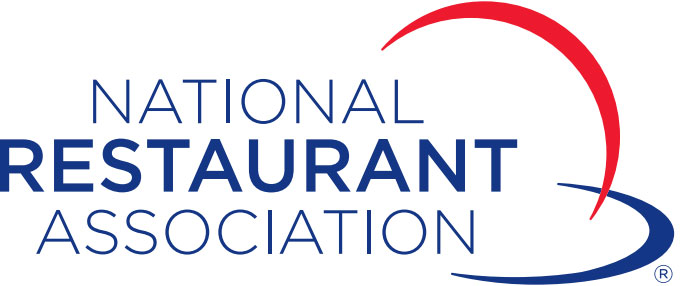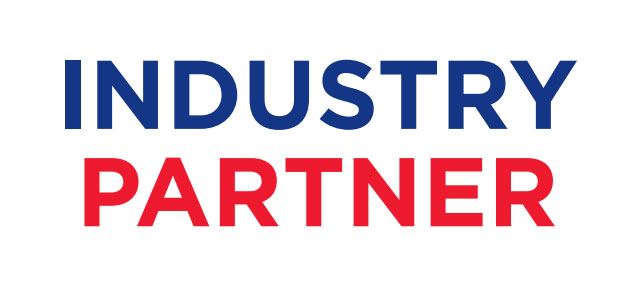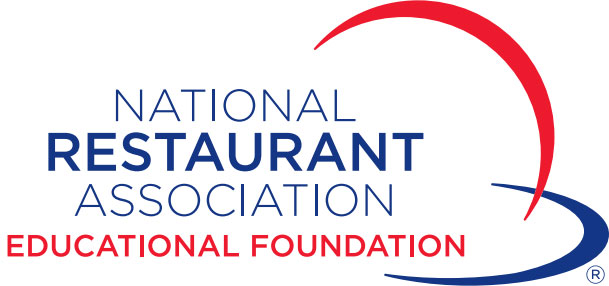The hotel and hospitality industry has experienced a remarkable surge in recent years, despite the challenges posed by the global pandemic. As travel restrictions have eased and people become more eager to explore new destinations, hotels find themselves grappling with high occupancy rates and an ever-increasing demand for bookings. But what we aim to find is the profound impact that increased traveling has had on the hotel industry and the factors hotel and resort businesses should consider to leverage this surge in demand. This is what we refer to as, the jet setter effect.
Boost in Occupancy Rates
One of the most immediate impacts of increased traveling is the rise in hotel occupancy rates. As more people embark on vacations or business trips, hotels are witnessing a higher influx of guests, resulting in fuller rooms and a greater utilization of hotel facilities. This surge in demand presents both opportunities and challenges for hotels to capitalize on.
On one hand, the increase in occupancy rates allows hotels to generate higher revenue. With more guests staying in their rooms, hotels are able to maximize their room inventory and generate increased profits. This enables them to invest in improvements to their facilities, enhance guest experiences, and expand their services. Moreover, higher occupancy rates enable hotels to negotiate better contracts with suppliers, ensuring cost savings and higher profit margins.
However, while increased occupancy rates bring numerous benefits, they also pose challenges for hotels to manage. One of the primary challenges is maintaining high service standards and ensuring guest satisfaction amidst a larger volume of visitors. With more guests to cater to, hotels must efficiently manage their resources, such as staff, housekeeping, and food and beverage services, to maintain consistent quality and meet guest expectations.
Another challenge is the potential strain on the physical infrastructure of the hotel. Higher occupancy rates mean more wear and tear on rooms, common areas, and facilities. To counter this, hotels must invest in regular maintenance, upgrades, and renovations to ensure that their premises remain in top condition.
Enhanced Revenue Generation
With higher occupancy rates come increased revenue opportunities for hotels. As more people choose to travel, the surge in travelers allows hotels to capitalize on this demand and generate higher profits. One of the key advantages of higher occupancy rates is the ability for hoteliers to exercise greater pricing power. During peak seasons or events, when the demand for accommodations is high, hotels can charge premium rates, maximizing their revenue per occupied room.
Moreover, the increase in occupancy rates presents an opportunity for hotels to tap into the growing trend of travelers seeking unique and personalized experiences. By offering tailored packages, special amenities, and exclusive services, hotels can cater to the specific needs and preferences of their guests. This not only enhances the guest experience but also allows hotels to differentiate themselves from competitors and attract higher-paying clientele. For example, boutique hotels may offer curated local experiences, such as guided tours or culinary adventures, while luxury resorts may provide exclusive access to spa facilities or private beach areas. These additional offerings can create additional revenue streams and contribute to the overall profitability of the hotel.
Diversification of Target Markets
Increased traveling also brings with it a diversification of target markets for the hotel industry. With a wider range of travelers seeking accommodation, hotels have the opportunity to cater to different demographics and preferences. This may involve adapting the amenities and services offered to appeal to various customer segments, such as families, solo travelers, or digital nomads. For example, they can offer adventure packages for outdoor enthusiasts, wellness retreats for health-conscious travelers, or cultural immersion programs for those interested in local heritage and traditions. These tailored experiences not only attract specific customer segments but also help hotels differentiate themselves from competitors and foster guest loyalty.
Families traveling with children may require family-friendly rooms, child-friendly activities, and amenities such as cribs or high chairs. Hotels can tap into this market by offering spacious family suites, organizing kid-friendly events, and partnering with local attractions that appeal to families. Additionally, they can provide on-site babysitting services or collaborate with trusted childcare providers to offer peace of mind to parents during their stay.
On the other hand, solo travelers or digital nomads may have different preferences and requirements. They may prioritize factors such as a well-equipped workspace, reliable Wi-Fi, and convenient access to local co-working spaces. Hotels can target this market by providing dedicated work areas within guest rooms, offering business center facilities, and collaborating with co-working spaces to provide discounted access or exclusive partnerships. Additionally, they can offer flexible check-in and check-out times to accommodate the unpredictable schedules of digital nomads, as well as amenities like on-site laundry facilities and extended stay options for those who require longer-term accommodations.
Embracing Technology
In today’s rapidly evolving hospitality industry, hotels are realizing the importance of embracing technology to effectively cope with the surge in demand. By integrating online booking platforms and mobile apps into their operations, hotels are able to provide guests with a seamless and convenient experience. These digital tools enable guests to easily book their stays, access information about the hotel’s facilities and services, and engage with the hotel staff. Moreover, by automating various processes through technology, hotels can improve efficiency, reduce errors, and allocate resources more effectively. Whether it’s streamlining check-in procedures or enhancing room service experiences, embracing technology allows hotels to stay ahead of the curve and deliver exceptional customer experiences.
There are several emerging technology trends are reshaping the hotel industry. Voice search is gaining popularity as guests turn to voice-activated devices to find accommodations and dining options. Cloud communications and artificial intelligence (AI) are transforming service automation, enabling personalized guest experiences. Smart rooms equipped with IoT (Internet of Things) devices enhance guest comfort and convenience. Contactless check-in and check-out processes minimize physical contact and improve efficiency. Virtual reality (VR) tours offer immersive experiences, allowing guests to explore destinations before booking. Mobile technologies, AI, and machine learning (ML) revolutionize hotel operations and customer engagement.
Evolving Customer Expectations
As more people travel and explore new destinations, their expectations for hotel stays have evolved. Travelers now seek unique and immersive experiences, demanding personalized services that go beyond traditional accommodation. Hotels must adapt to these changing expectations by offering innovative amenities, such as wellness facilities, rooftop bars, co-working spaces, and local experiential activities. Personalized greetings, room preferences, and special touches can also enhance the overall guest experience.
Customers are also increasingly seeking authentic and immersive experiences that connect them with the local culture and community. Hotels can cater to these expectations by collaborating with local businesses and offering unique experiences such as guided tours, cooking classes, or cultural workshops. By highlighting the destination’s rich heritage and providing opportunities for interactions with locals, hotels can create memorable experiences that resonate with customers. By staying ahead of the curve, hotels can differentiate themselves in a competitive market.
Environmental Sustainability
Increased traveling has sparked a rising interest in environmental sustainability within the hotel industry. As more and more travelers become conscious of their carbon footprint, they are actively seeking out eco-friendly accommodations. In order to cater to this growing demand, hotels around the world are implementing various green initiatives. One example of an initiative is adopting energy-efficient practices, such as using LED lighting, installing motion sensors to control electricity usage, and optimizing heating and cooling systems. These measures not only reduce energy consumption but also help hotels save on operational costs.
Another example of a green initiative is the implementation of waste reduction programs. Hotels are working towards reducing single-use plastics, implementing recycling programs, and encouraging guests to participate in sustainable practices. Some hotels have even gone as far as composting organic waste and transforming it into fertilizers for their gardens. Hotels are also now increasingly relying on renewable resources to power their operations. This includes utilizing solar panels to generate electricity, implementing water-saving technologies, and even harnessing geothermal energy for heating and cooling purposes. By embracing sustainability, hotels not only attract environmentally conscious guests but also contribute to the preservation of our planet. This shift towards eco-friendly practices is a positive step forward for the hotel industry in creating a more sustainable future.
Staffing Challenges
While increased traveling presents numerous opportunities, it also poses challenges, particularly in terms of staffing. With higher occupancy rates and a constant demand for bookings, hotels may face difficulties in recruiting and retaining qualified staff members. To address this issue, hotels should invest in staff training and development programs, offer attractive incentives and benefits, and foster a positive work environment that promotes employee satisfaction and loyalty.
Hotel businesses can also make use of companies like us, Gecko Hospitality. We specialize in finding top-tier management candidates specifically for the hospitality industry. For lack of better words, we’re going to ‘toot our own horn.’ Gecko has been in this industry for over 23 years, had been named to FORBES ‘America’s Best Executive Recruiting Firms for 5 years, and has over 100 recruiters nationwide working tirelessly to find our clients THE best management staff in the country. We’ve also recently partnered with Escoffier School of Culinary Arts to further expand our reach to candidates in the chef and cooking sector of our industry. So if staffing challenges are an issue for you, you know who to call!
The impact of increased traveling on the hotel industry cannot be understated. From higher occupancy rates and revenue generation to the need for technological advancements and the evolution of customer expectations, hotels must adapt to meet the demands of an ever-growing traveler base. By embracing these changes, focusing on sustainability, and nurturing their workforce, hotels can position themselves to thrive in this dynamic and evolving industry.








